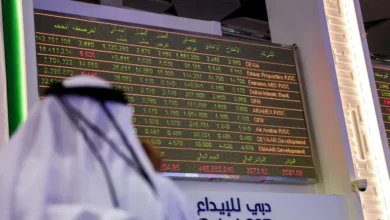All Middle East and North Africa (MENA) sovereigns face significant water-related challenges, which will be compounded by the effects of climate change.
According to Moody’s, this exposure curbs credit strength by limiting economic growth potential and eroding fiscal resources.
“If left unaddressed, it could also aggravate social and cross-border tensions, increasing political riskm,” says Moody’s.
Water-related risks curb sovereign creditworthiness through multiple channels.
Water scarcity limits economic strength through lost growth opportunities and raises the fiscal burden by compelling governments to spend on projects to support their water resources.
Exacerbated by severe scarcity, water management risks engender social and geopolitical strains because of the critical importance of adequate water supply for food security, economic development and social stability.
Water-related exposures are largest for sovereigns with lowest per capita incomes, while mitigants are strongest in the Gulf Cooperation Council region.
Water scarcity and water management risks pose the biggest credit constraint for sovereigns where water-intensive agriculture is an important source of employment and income, including Egypt, Morocco and Tunisia.
In the energy-abundant Gulf Cooperation Council (GCC), risks are mitigated by higher percapita incomes, implying lower dependence on domestic agricultural output, and the capacity to supplement renewable water resources with energy-intensive seawater desalination.
However, even in the GCC, improving water security will require significant additional investments in water infrastructure, especially in Saudi Arabia, which currently meets most of its water demand by tapping nonrenewable underground aquifers.
“Sovereigns with stronger institutions, which support good water sector governance, will be better positioned to manage water-related challenges.”






I have discovered that wise real estate agents everywhere are getting set to FSBO ***********. They are noticing that it’s in addition to placing a sign in the front place. It’s really about building connections with these retailers who one of these days will become consumers. So, while you give your time and efforts to supporting these suppliers go it alone – the “Law involving Reciprocity” kicks in. Interesting blog post.
wonderful issues altogether, you simply won a new reader. What would you suggest in regards to your post that you made some days ago? Any sure?
affordablecanvaspaintings.com.au is Australia Popular Online 100 percent Handmade Art Store. We deliver Budget Handmade Canvas Paintings, Abstract Art, Oil Paintings, Artwork Sale, Acrylic Wall Art Paintings, Custom Art, Oil Portraits, Pet Paintings, Building Paintings etc. 1000+ Designs To Choose From, Highly Experienced Artists team, Up-to 50 percent OFF SALE and FREE Delivery Australia, Sydney, Melbourne, Brisbane, Adelaide, Hobart and all regional areas. We ship worldwide international locations. Order Online Your Handmade Art Today.
My brother recommended I might like this web site. He was entirely right. This post truly made my day. You cann’t imagine simply how much time I had spent for this information! Thanks!
I?ve been exploring for a bit for any high-quality articles or weblog posts on this kind of space . Exploring in Yahoo I eventually stumbled upon this web site. Studying this information So i am satisfied to exhibit that I’ve a very good uncanny feeling I discovered just what I needed. I so much undoubtedly will make sure to don?t omit this site and provides it a glance on a continuing basis.
Great ? I should definitely pronounce, impressed with your website. I had no trouble navigating through all tabs as well as related information ended up being truly simple to do to access. I recently found what I hoped for before you know it in the least. Quite unusual. Is likely to appreciate it for those who add forums or something, website theme . a tones way for your customer to communicate. Excellent task..
That is the best weblog for anybody who desires to seek out out about this topic. You realize so much its virtually laborious to argue with you (not that I really would want?HaHa). You undoubtedly put a new spin on a subject thats been written about for years. Nice stuff, simply great!
You really make it seem so easy together with your presentation but I in finding this matter to be really one thing which I believe I’d by no means understand. It seems too complicated and very vast for me. I am looking ahead on your next publish, I?ll attempt to get the dangle of it!
This is undoubtedly one of the finest articles I’ve read on this topic! The author’s comprehensive knowledge and zeal for the subject are apparent in every paragraph. I’m so grateful for finding this piece as it has deepened my knowledge and ignited my curiosity even further. Thank you, author, for taking the time to create such a remarkable article!
Hey there! I’ve been following your web site for some time now and finally got the bravery to go ahead and give you a shout out from Atascocita Tx! Just wanted to tell you keep up the excellent work!
Great work! This is the type of info that should be shared around the internet. Shame on Google for not positioning this post higher! Come on over and visit my site . Thanks =)
Greetings from Colorado! I’m bored to death at work so I decided to check out your website on my iphone during lunch break. I love the info you provide here and can’t wait to take a look when I get home. I’m shocked at how quick your blog loaded on my cell phone .. I’m not even using WIFI, just 3G .. Anyways, superb site!
Thanks for your exciting article. Other thing is that mesothelioma cancer is generally due to the breathing of materials from asbestos fiber, which is a dangerous material. Its commonly noticed among employees in the construction industry who may have long exposure to asbestos. It could be caused by residing in asbestos protected buildings for a long period of time, Inherited genes plays a huge role, and some persons are more vulnerable towards the risk than others.
I do consider all the ideas you’ve presented to your post. They are very convincing and can definitely work. Nonetheless, the posts are very short for starters. May just you please lengthen them a bit from subsequent time? Thanks for the post.
I can’t express how much I admire the effort the author has put into writing this remarkable piece of content. The clarity of the writing, the depth of analysis, and the plethora of information presented are simply astonishing. His enthusiasm for the subject is evident, and it has undoubtedly made an impact with me. Thank you, author, for sharing your wisdom and enhancing our lives with this extraordinary article!
I have taken notice that in digital cameras, special detectors help to {focus|concentrate|maintain focus|target|a**** automatically. The actual sensors regarding some cams change in in the area of contrast, while others work with a beam of infra-red (IR) light, especially in low lighting. Higher specification cameras occasionally use a mixture of both models and might have Face Priority AF where the video camera can ‘See’ any face and focus only upon that. Many thanks for sharing your notions on this site.
It’s the best time to make a few plans for the future and it is time to be happy. I’ve learn this post and if I may just I want to suggest you some interesting things or tips. Perhaps you can write next articles regarding this article. I desire to learn even more issues about it!
Youre so cool! I dont suppose Ive learn something like this before. So nice to search out anyone with some authentic ideas on this subject. realy thanks for beginning this up. this website is one thing that’s needed on the internet, someone with a bit originality. useful job for bringing something new to the internet!
Dealonomy
Howdy are using WordPress for your blog platform? I’m new to the blog world but I’m trying to get started and set up my own. Do you need any coding knowledge to make your own blog? Any help would be really appreciated!
Normally I do not learn article on blogs, but I wish to say that this write-up very forced me to check out and do so! Your writing style has been surprised me. Thanks, very nice post.
Hi, Neat post. There’s a problem with your site in internet explorer, would check this? IE still is the market leader and a big portion of people will miss your great writing because of this problem.
I truly appreciate this post. I?ve been looking all over for this! Thank goodness I found it on Bing. You’ve made my day! Thx again
In these days of austerity as well as relative anxiousness about getting debt, lots of people balk resistant to the idea of employing a credit card to make purchase of merchandise or perhaps pay for a vacation, preferring, instead only to rely on the tried in addition to trusted approach to making payment – hard cash. However, if you have the cash available to make the purchase entirely, then, paradoxically, that’s the best time just to be able to use the cards for several factors.
Its like you learn my thoughts! You appear to grasp so much approximately this, such as you wrote the e-book in it or something. I think that you simply can do with a few percent to drive the message house a little bit, but other than that, this is wonderful blog. A fantastic read. I will definitely be back.
I was just seeking this information for a while. After 6 hours of continuous Googleing, at last I got it in your website. I wonder what’s the lack of Google strategy that do not rank this kind of informative websites in top of the list. Usually the top sites are full of garbage.
I switched from another service because of the robust security and useful analytics.